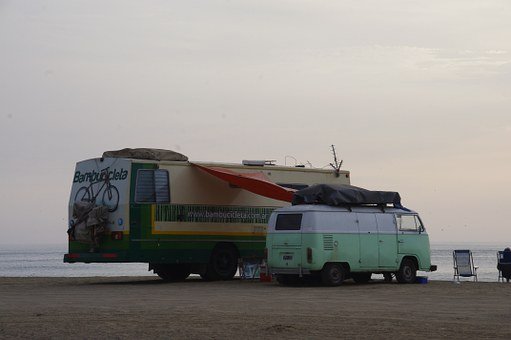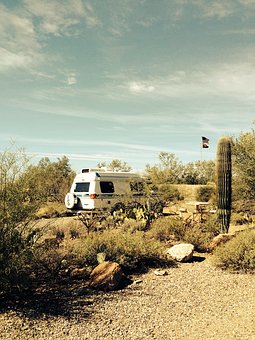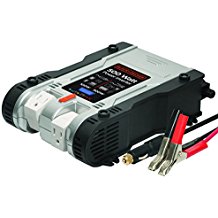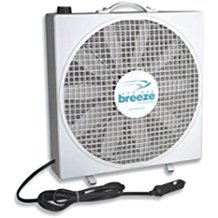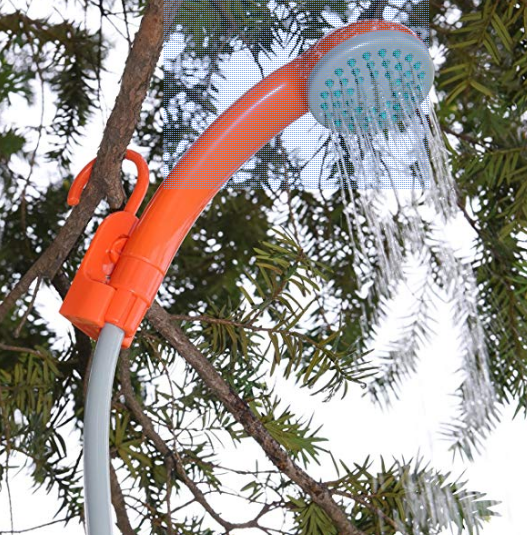In my last post I touched on traveling and or living in an RV as opposed to traveling and or living in a van and I mentioned several differences. One thing I did not mention is this. I found out early on that I truly love the more remote dispersed camping spots where I can enjoy amazing scenery, nature and hiking. That ‘extra’ elbow room when I camp is very appealing to me. I found that with my large RV, I could not access those areas and my van gives me the freedom to go anywhere I wish to go. I have nothing against RV parks, it’s just that they are not for me. I find them too crowded; some can be noisy and most are too pricey.
One of the great things I like about boon docking is the ability to move my van around and park it in such a way as to take advantage of the sun on my solar panels for max sun power.
I also have a long extension cord that affords me the ability to park in the shade if I desire and then place my solar panels in the sun without having the sun beat down on my van.
Radiant Heater
This is one item to consider when dry camping as there are no hookups off grid and you may find yourself in a cold area from time to time and some folks enjoy winter camping. I used to carry a small propane heater that was very efficient, but in becoming a minimalist, that heater was one of the things that I got rid of. I do very little cold weather camping, but there are times, even in the Sonoran Desert in southwest Arizona, when the temperature will get down into the 40’s at night causing a chill in my van. When that happens and if I feel the need for some warmth, I simply turn on my cook stove and in a matter of 5-6 minutes, the van is toasty. One word of caution here; no matter what type of heating unit you may use, it’s imperative it’s vented. Propane heaters can kill you. When I use my cook stove inside my van, I always make sure to crack 2 windows to insure I have proper ventilation.
Lighting
Since I sold my large RV and now travel and live out of my van, I no longer have the power hungry lights. In fact, I’ve learned that I need very little lighting in my van. I do have a series of puck lights that I bought off Amazon and have them strategically placed around the interior of my van and I can operate them remotely. Each puck light has its own power supply consisting of 3 triple A batteries. Normally, one or 2 of these puck lights is adequate inside my van, even for reading and the batteries are good for a very long time.
Powering the van or RV
Batteries
Batteries are the lifeblood of a dry camper or boondocker. Regardless of what you prefer; solar or generator, you need a way to store power. My RV had a 12 volt deep cycle RV / marine type battery. I could dry camp with this OK and it was adequate, but usually depleted the charge nightly. I had no solar, so the only way to recharge it was when I was driving my RV and the RV battery would recharge the house battery.
Generator
When traveling, I find it very interesting that at times when off grid, I find myself among other van dwellers. I suppose it’s because we all use the same apps for finding free camp sites, BLM sites, etc. I have also found that this ‘community’ of RV / van dwellers can be very welcoming and friendly, often inviting others to share a drink or a meal. And inevitably, talk centers on our homes on wheels and sharing information. During these conversations, I’ve learned that a good many van dwellers carry a generator. As mentioned previously, I have solar panels and so far, I’ve had no problems in charging my house battery with my solar panels, but some folks opt for a generator instead of solar. A big advantage of a generator is that it can provide all the power one needs with the exception of running an air conditioner. It affords you the ability to use a microwave, use other appliances, watch TV, charge your house battery, etc.; all the conveniences of hookups except for the carrying of gasoline for the generator and the noise. Noise can be an issue with other nearby dry campers.
Following are some tips on using generators so as not to annoy others.
I have found that the majority of generator owners use small, inverter type generators such as the Honda EU2200i sold on Amazon.com which are relatively quiet.
• Use an ‘Inverter Type’ generator as opposed to an open frame construction. These inverter types usually have an economy mode so the engine revs up only as needed and use less fuel.
• Don’t set up your camp near other campers that have solar panels displayed. These people invested in solar so they wouldn’t have to hear the noise from generators running.
• Common sense goes a long way when deciding when to run your generator. Near-by folks will be annoyed by the steady drone of your generator during early morning and evenings as they sit out enjoying the outdoors.
• Position your generator so as to reduce noise. Using your vehicle between your generator and other campers will help.
Solar Power
My solar system is a Renogy, suitcase type, 100 watt solar panel system. I chose this because I didn’t want the panels permanently attached to the roof of my van as I prefer the stealth look to my van. This portable system in a suitcase is neat as it folds up and can be carried in a suitcase type bag.
Once put away in its bag, it stores easily and out of the way inside my van.
When I’m ready to recharge my house battery, I simply take the solar panel out of its case and set it up to capture the sun. The suitcase comes equipped with a charge controller built is, so it’s very easy to use.
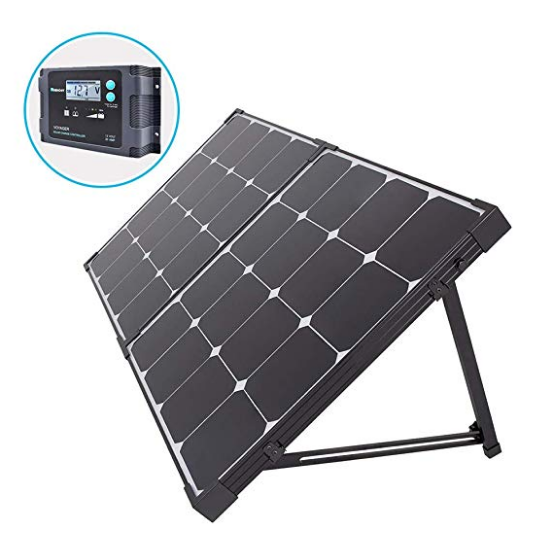 On a bright sunny day, I can recharge my laptop, phone and any other electronic devices and have a fully charged house battery to keep my refrigerator running.
On a bright sunny day, I can recharge my laptop, phone and any other electronic devices and have a fully charged house battery to keep my refrigerator running.
Inverter for AC Power
The only thing needed now is an inverter. This device takes my 12 volt DC battery power and changes it into 120 volt AC power. This is the same as you would use in your home with regular household plugs. The inverter allows you to power up and charge AC only devices without the need for a generator.
I have a 500 watt unit and it serves me well. It will power all my needs, such as my laptop computer, charge my phone, etc.
Fan – 12 volt
I’ve never been in a situation where I felt the need for air conditioning. A fan of course is a different matter. When I decided to purchase a fan, I opted for a Fan-Tastic Fan.
It runs on DC and uses very little power, something like an amp or 2 and moves a significant volume of air with very little noise. It’s a great fan and perfect for dry camping. The amount of air it circulates makes a huge difference inside my van.
Water and Showering
With my RV, I had plenty of fresh water holding capacity and ample tank space for gray and black water. With my van, I don’t have that luxury, but again, I chose dry camping in areas my RV would not go over comfort. Having made that decision, I have had no problems. I can carry enough fresh water for my needs for a week and then It’s just a trip back to the closest town or fresh water source for more water. I have a porta-potty for toilet needs and a portable shower. Taking a shower has not been an issue. I bought a portable shower on Amazon for under $40. I heat water on my cook stove and mix it with cold water in a (Home Depot) 5 gallon bucket. I then drop the base of my shower in the bucket and hang the shower from a limb or use the suction cup attachment and affix it to my rear van door.
The battery operated shower can be charged with an included USB cable.
This shower works great for me. In addition, I have a gym membership to a nationwide chain that I can use basically anywhere I travel, so that’s an option. If I’m on the road and I find myself in an area and my gym doesn’t have a facility there (which is rare), I will on occasion, visit a Pilot or TA Truck Stop. You can rent a shower there for about $8.00, depending on location. So you can see, just because I no longer have my big RV, I do not have to do without.
Trash and Garbage
Usually where I camp, there are no garbage or trash cans. Some BLM Lands do have trash cans, but they are not too plentiful. When dry camping, it’s a matter of, “if you take it in, you take it back out.” I’ve had no issues with trash and garbage. I simply double bag any garbage so as to eliminate any odors and carry it to the nearest trash receptacle and dispose of it.
Internet
If you’re a big Internet user and like to dry camp, then you’re going to be disappointed by the lack of Internet access. It’s basically non-existent where I boon dock. I will say this, of all the folks I talk with regarding this, Verizon seems to be the best, especially out west where most dry camping takes place. I’ve been a Verizon subscriber for years and can attest to the fact that Verizon rarely lets me down, except in very off-grid areas. I usually check my email, etc when I go back into town for supplies, etc. There’s usually a MacDonald’s or some other establishment that offers free wi-fi. I also have an unlimited plan with Verizon including data and I can use my iPhone as a “hot spot” which provides me with wi-fi for my laptop if I need it for any reason.
Conclusion
So, there you have some basic dry camping or boon docking tips that I use. I hope that this information has helped you in some small way as you plan your next boon docking trip.

